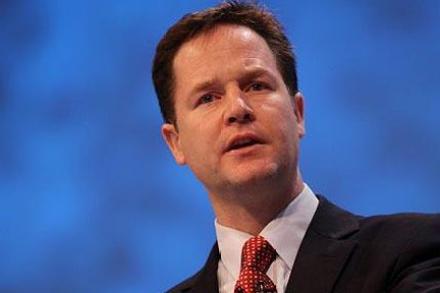Will Labour ever start love-bombing the Lib Dems?
Let’s dwell on the Labour leadership contest a second longer, to point its participants in the direction of John Rentoul’s column today. Its central point – that Labour should “leave a door ajar” for Nick Clegg – should be self-evident to a party which has been forced out of power by a coalition. But, in reality, Labour seems eager to ignore it. At best, there’s a lazy assumption that the Lib Dems will one day divorce the Tories and quite naturally shack up with the lady in red. At worst, there’s outright hostility to Clegg and his fellow, ahem, “collaborators”. Neither approach will do much to break the ties that





















